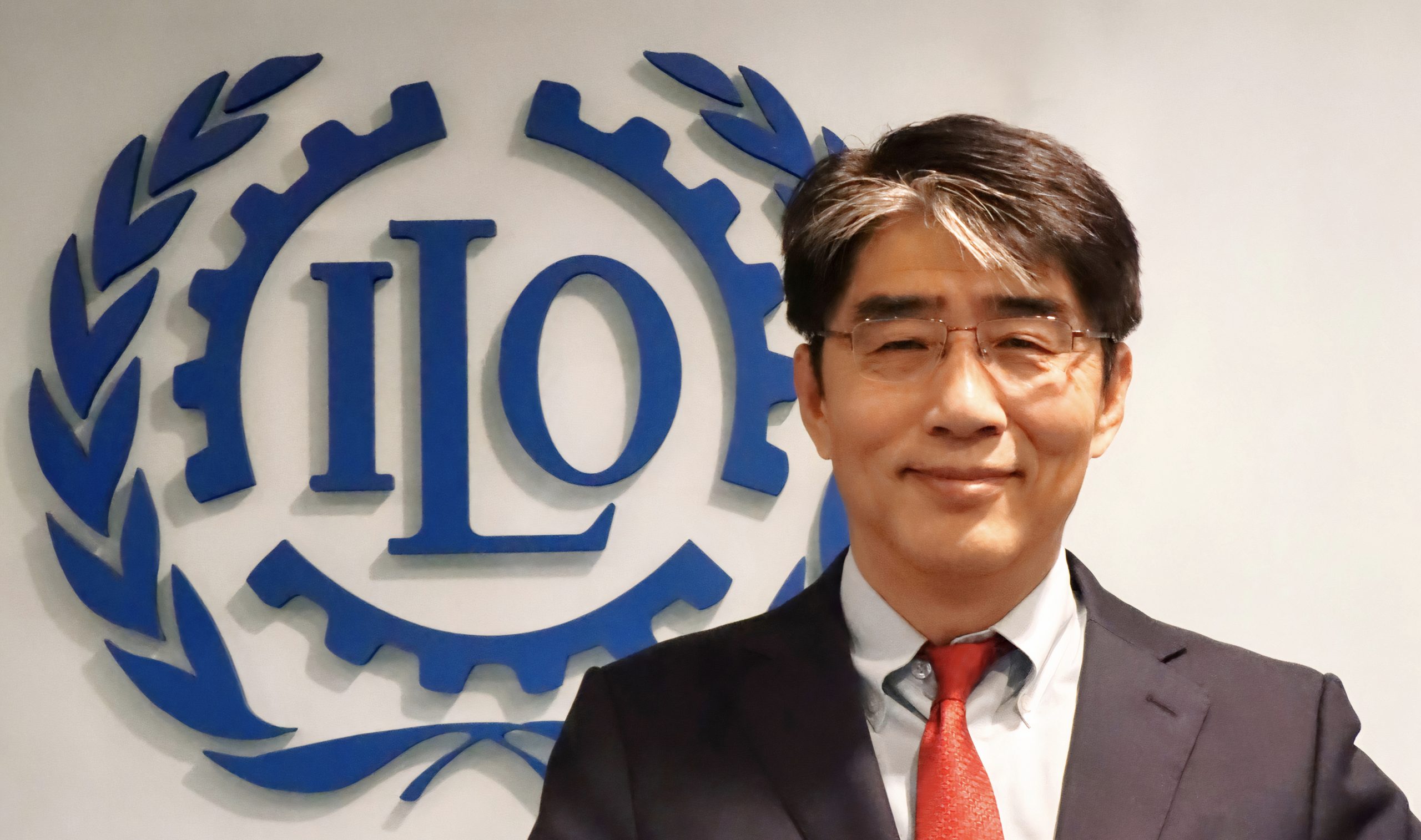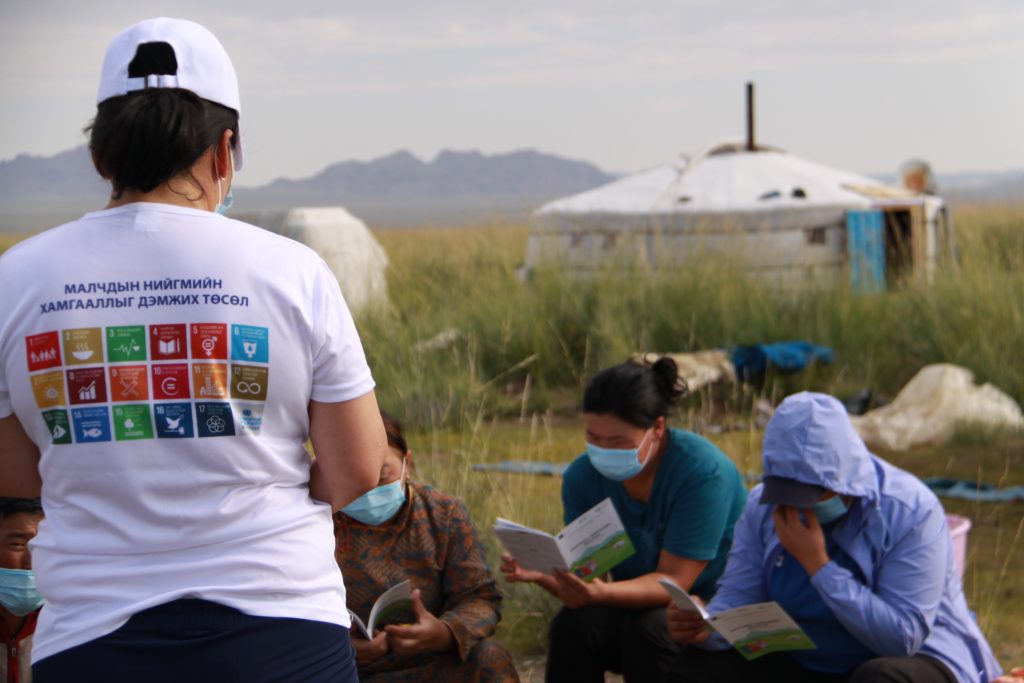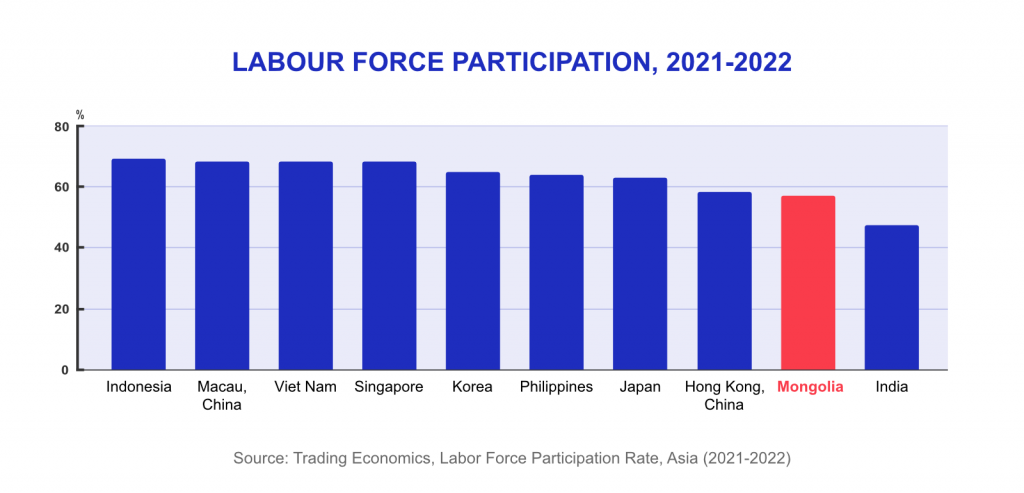Chang-Hee Lee: Around 46 percent of Mongolia’s employed population work in the informal economy

Mongolian Economy spoke with the Director of ILO Country Office for China and Mongolia Chang-Hee Lee about ILO operations in Mongolia, his insights into the Mongolian labour market and new labour law.
-Could you briefly introduce yourself to our readers?
-My name is Chang-Hee Lee. I have worked at ILO HQ and field offices in Thailand and Vietnam for the last 26 years. Since July 2021, I started working as the Director of ILO Country Office for China and Mongolia.
However, I am not new to Mongolia. I have many Mongolian friends and colleagues with whom I have worked since my first visit to this amazing country in 2001. I have unforgettable memories of work and friendship in your beautiful country.
-For our readers who are not familiar with the ILO, could you give us a brief introduction to ILO?
-International Labour Organization (ILO) is one of oldest UN agencies, created 103 years ago in 1919, to promote social justice and everlasting peace. ILO has a very unique tripartite structure where the governments sit together with representatives of workers’ and employers’ organizations to make joint decisions on international labour standards and other key social and labour policies at the global level. A key function of the ILO is to set international labour standards through tripartite discussion, and provide technical support to its member states with an aim to improve their policies, labour and social laws. ILO in Mongolia works as an integral member of UN Country Team under overarching UN Sustainable Development Cooperation Framework for 2023-2027, with ILO working for better future of world of work.
-How would you describe the relationship between ILO and Mongolia? What are main areas of cooperation?
-The history of ILO and Mongolia’s cooperation goes back for more than half a century. Mongolia has become a member of the ILO in 1968 committing itself to respect and realize the rights at work with respect to international labour standards. This cooperation has further broadened and deepened from the time when Mongolia started its transition to a market economy in the early 1990s.
During the last 30 years, the ILO’s support focused on modernizing labour laws and improving social and labour policies, covering employment promotion, occupational safety and health, social insurance, labour standards, labour relations, labour inspection, wages, labour statistics and others. In doing so, ILO work not only with the Government of Mongolia, but also with social partners such as CMTU and MONEF as social partners who have to be in a driving seat together with the government in shaping effective labour market and employment system for workers and employers. I must say that Mongolia has a wonderful tradition of tripartite social dialogue, which is one of key goals ILO.
-Can you please give us some specific examples of Mongolia’s achievements through collaboration with ILO?
-There are many, but let me just highlight a few major achievements. In Asia, Mongolia is a frontrunner when it comes to commitment to the ILO Declaration on Fundamental Principles and Rights at Work. The Declaration, adopted in 1998 and amended in 2022 by tripartite representatives of 187 ILO member states, defines five categories of principles embedded in 10 ILO Conventions covering elimination of child labour, forced labour and discrimination at work, respect for freedom of association and collective bargaining, and occupational safety and health as the Fundamental Principles and Rights at Work to be respected by all ILO member states. The Declaration has become point of reference in most new free trade and investment agreements, including the European Union’s Generalized Scheme of Preferences Plus (GSP+), and also in the CSR statement of major multinational enterprises. Mongolia has ratified nine fundamental conventions concerning forced labour, child labour, non-discrimination, freedom of association and collective bargaining, and occupational safety and health. I truly believe that Mongolia’s commitment to the Declaration would benefit not only workers but also employers and the entire society as it is an important social pillar of the global trade system and supply chains.
With the support of the United Nations Sustainable Development Goals Fund (UNSDG Fund), together with other UN agencies, ILO has worked with the government and social partners to extend the coverage of social insurance to herders who are the custodian of Mongolian tradition and environment but who were excluded from the protection of social insurance. To reach them out, ILO and the Government of Mongolia have experimented with digitalized social insurance administration, making it easier to reach out to herders.
Another important achievement is the improvement of the labour law. As you must know, the new Labour Law, which was approved by the Parliament in July 2021, has come into effect in January 2022. On this occasion, I want to express my appreciation for the EU who provided continuous support from the beginning of the labour law revision process.

The ILO-led UN Joint Programme on Extending Social Protection to Herders with Enhanced Shock Responsiveness
-Can you tell us more about the amendments to the labour law? What are the main improvements brought by the new labour law?
-Ever since the legislative process leading to the adoption of Mongolia’s first modern labour law in 1999, ILO has worked with the Government of Mongolia, the Parliament, and social partners for improving labour law. The key objectives of revising the labour law were to adapt the law to a new reality of a market economy, extend its coverage to all types of workers, especially workers in informal economies, and provide better protection for workers in response to new forms of work and employment. The new labour law, for example, protects remote work, work on call, working in triangular relationships, while prohibiting child labour and forced labour. Also, it’s noteworthy that the law prohibits all types of harassment and violence at work, including sexual harassment. The law allows unannounced labour inspections where there is reasonable cause to believe to be liable to inspection.
The law also made an important change in the labour dispute mechanism which aimed at resolving disputes as quickly as possible. With that, the ILO is working closely with the Government to develop relevant rules and procedures to enforce the law, and strengthen capacities of the tripartite dispute resolution committees at sectoral, local and company levels.
Consequently, we can safely say that the new labour law provides better protection for workers, responding to new employment and work practices.
Of course, the law becomes meaningful when it is effectively enforced and respected. For this, ILO is working with the Ministry of Labour and Social Protection and the General Inspection Office for improving labour inspection, while also supporting the capacity building of CMTU and MONEF for their constructive roles in the implementation of the law through social dialogue.
-You have published numerous articles on industrial relations and human resource management. In your opinion, what are the common problems in human resource management in both private and public sectors in Mongolia?
-My last visit to Mongolia was more than 10 years ago. Hence, it is not appropriate for me to comment on the current state of industrial relations and human resource management in Mongolia. Generally speaking, conflicts and inefficiency at the workplace arise from a lack of mutual respect and two-way communication between employees and managers. That is why it is important to have a suitable mechanism for dialogue that can help to nurture mutual respect and prevent conflicts. An adequate mechanism to fix wages in a mutually acceptable manner through dialogue is also an important factor to maintain morale and improve productivity.
Also, we should not forget there are many factors, beyond any individual companies, which affect the overall industrial relations climate at the workplace. For example, effective enforcement of laws, regular adjustment of minimum wages, effective system of skill training and education, effective work of trade unions and dispute settlement mechanism – all affect workplace performance and harmony.
-What are the key labour market challenges in today’s Mongolia? How can we address those challenges?
-Let me give you some numbers to illustrate key characteristics and challenges in today’s labour market.
Mongolia has around 2.1 million working-age population and, of which, only 56.9 percent are in the labour force. For women, this number is even lower – only 49.9 percent. This means around 900 thousand people are outside of the labour force. Of those who are working or 1.2 million workers, 46 percent or 480 thousand people are engaged in the informal economy, which means they have no proper employment contract and are most likely not contributing to the social insurance scheme. Moreover, youth unemployment is two and a half times higher than the national average, and one out of five young people are neither in employment, education, nor training.

This situation is simply not sustainable. We need to improve labour market participation of the working age population, particularly women. We need effective investment in human resource development through better education and vocational skill training. More specifically we need an “active labour market policy” to train workers who are in transition from one job to another, from one industry to another, as economic structure keeps evolving and changing, under the influence of climate change, technological transformation of business models and global trade situation. We need to establish universal protection so that livelihood of workers and their families can be supported during this rapid change and uncertainty for long-term societal well-being and productivity.
Of course, one size cannot fit all, and Mongolia needs a Mongolian solution by putting together collective wisdom through social dialogue for long-term sustainable policy responses. ILO is ready to provide all technical support required for the such comprehensive response.
-As a new Director of ILO for China and Mongolia, do you have any goals you aspire to achieve during your term?
-Nothing specific. I only want to be an ILO Director who actively listens to the concerns and inspiration of the governments and social partners, and who does his best to facilitate and support joint efforts of tripartite actors for decent work and a sustainable future for Mongolia. I am here to be with you to face the current challenges together, overcome difficulties workers and employers face, and to move towards a sustainable future.